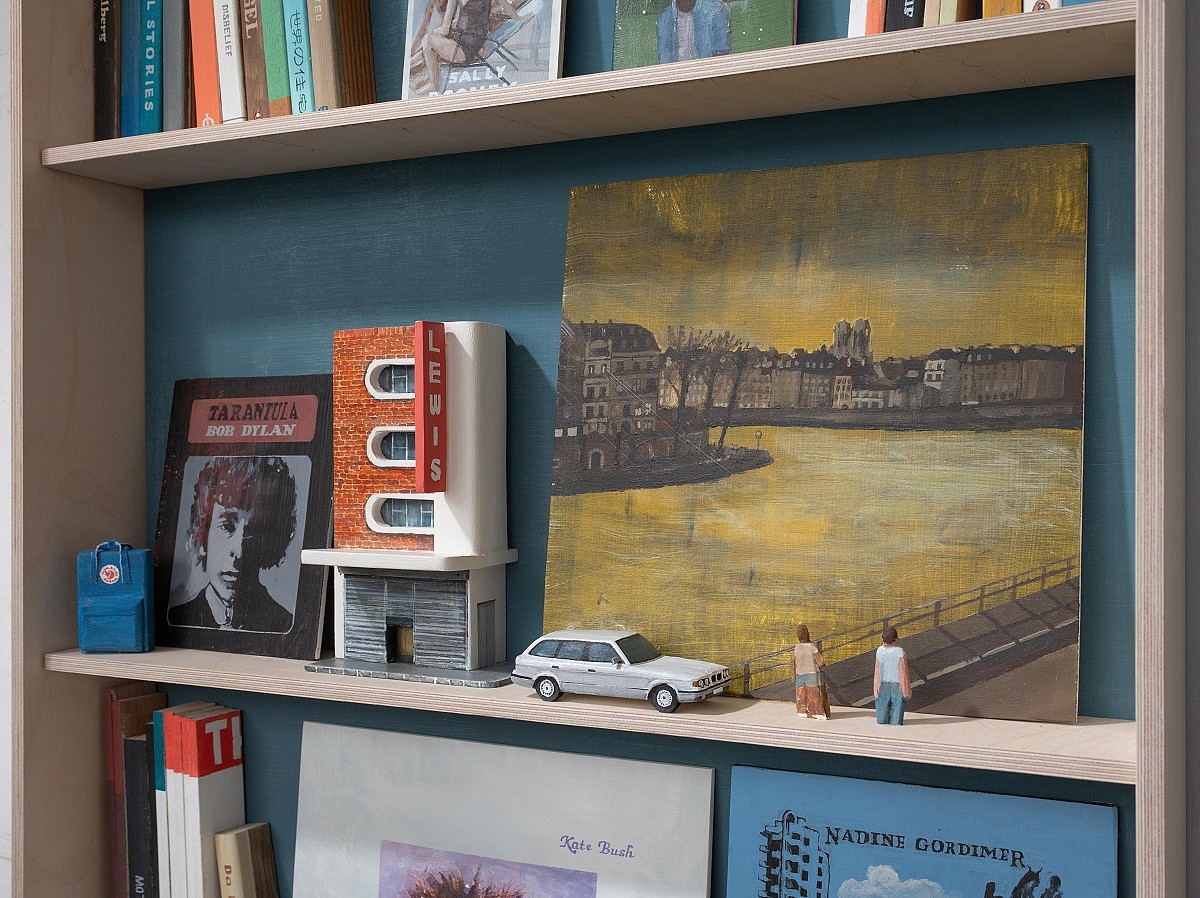PRESS RELEASE

EX LIBRIS | a group show
Nov 12 – Dec 4, 2022
EX LIBRIS
A group exhibition about books, book plates, book curses, book ownership and the provenance of books curated by Barbara Wildenboer.
Everard Read at Leeu Estates | 12 November – 4 December
Please join us for the exhibition opening on the 12th of November at 11AM!
To request a catalogue click HERE
Participating artists:
Kamyar Bineshtarigh
Tom Cullberg
Stephan Erasmus
Bella Knemeyer
Warren Maroon
Maja Marx
Sepideh Mehraban
Seretse Moletsane
Brett Seiler
Barbara Wildenboer & Elizabeth Msiza collaboration
Whosoever shall carry off this tablet, or shall inscribe his name on it, side by side with mine own,
may Ashur and Belit overthrow him in wrath and anger, and may they destroy his name and posterity in the land.
— Book curse traced back to the Assyrian King, Ashurbanipal - 668 to 627 BC.
History of Assurbanipal, Translated from the Cuneiform Inscriptions (1872).
The proposed exhibition combines the work of 11 South African-based artists working with media ranging from painting to calligraphy to printmaking and to the use of books as found objects. Each artist has been chosen specifically for the way in which they have some connection with or engage in some manner with the book/book page/text as either a physical object or as an abstract idea.
The book as a material object has a long history of being stolen, burned or otherwise vandalized. The central purpose of the ex-libris or bookplate was the same as that of the earlier book curse: to protect the book from thieves and vandals. Ex Libris literally translates as "from books" and is used to mean “from the library of.” The original practice of using bookplates however has had a long and novel history. Affluent early readers often commissioned personalized bookplates to mark all copies of their collections. These customized bookplates would reflect the interests and social standings of their owner. They employed period-specific styles and motifs which often provide clues to to track in when a particular ex-libris was created and connect it to a specific historical period. Because of this the ex-libris became an important marker of provenance along with other aspects such as bindings, book rhymes and notes written in the bindings of text or other obscure details, such as the use of dog-ears as markers.
Even though earlier manuscripts also carried the markings of ownership, the practice of affixing bookplates to books began in Germany in 1480. A Cartesian monk named Hilprand Brandenburg developed a handpainted bookplate containing a coat of arms and the personal signature of the owner. It was also often the practice to attach a chain to books contained in the libaries of monasteries which were the only place people could access books.
Bookplates and the medieval library chains were not the only means employed to protect ownership of early manuscripts. Book curses were another method used. One of the earliest forms of the book curse dates back to the Assyrian King Ashurbanipal who had a book curse inscribed on all the tablets collected at the Library of Nineveh, which was considered one of the earliest examples of a systematically collected library. Unlike today, books in the Middle Ages were rare and expensive and painstaking and time consuming to produce. So scribes and book owners would go to great lengths to protect their works. The book curse was put at either the beginning or end of a book as part of the colophon to discourage theft. Fortunately it was a time when superstition was rife and prospective thieves were easily convinced that they would die a painful death if they were to even tear a page out of a book inscribed with such a curse. The curses provided a substantial social and religious penalty for those who would steal or deface books. This custom, sometimes included in the bookplate, continued to be used from the Middle Ages through to the Edwardian era.
The popularity of the ex-libris continued to grow during the course of the 19th century to the extent that these original bookplates eventually became just as collectible as the books into which they were pasted.
Through a collection of artworks dealing with the book, not only as subject matter but also as raw material, the exhibition Ex Libris will transform the gallery space into a conceptual library of sorts that comments on conflicting ideas of authorship, ownership, appropriation and theft.
- Barbara Wildenboer
Everard Read at Leeu Esates
Leeu Estates, Dassenberg Road, Franschhoek
Opening times: Wednesday - Sunday 10:00 - 17:00
Contact us to make an appointment outside of these hours.
erlgallery@everard.co.za
021 492 5980



